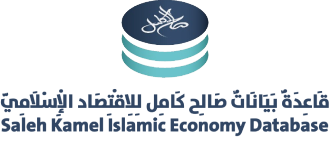The frequency of data updates on the Saleh Kamel Islamic Economy Database can vary depending on the type of data and the sources. Generally, databases like this aim to update their information regularly to ensure accuracy and relevance. Here are some common practices:
- Periodic Updates: Key datasets, such as economic indicators and institutional information, are often updated on a quarterly or annual basis.
- Event-Driven Updates: Data related to events, such as new Shariah board decisions or halal certifications, may be updated as soon as new information becomes available.
- User Contributions: Contributions from researchers and professionals can lead to more frequent updates, especially if the platform encourages ongoing submissions.
For the most accurate information on update frequency, you might want to check the website’s documentation or contact the database administrators directly.
